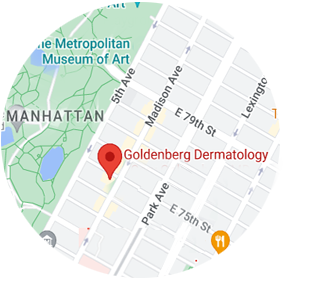5 Ways To Calm Eczema Symptoms
Eczema, or Atopic Dermatitis, is a rash that can appear anywhere on the body. It is itchy, red, dry, and, depending on where it appears, often very embarrassing. It is very common among children, and though it frequently abates with age, it is also common among adults, regardless of whether or not they suffered as children. It is the result of overactive inflammatory cells in the skin, though the exact causes of this overreactivity are unknown. The triggers of eczema are well known however, and include irritants to the skin such as dry air or chemicals, allergic reactions, stress, infections and dry skin.Trying to relieve the itch caused by eczema by scratching or wearing scratchy materials only further irritates the skin, making eczema a difficult problemget rid of.
There is no absolute cure for eczema, but through the regular implementation of several simple steps, most patients find that they can manage the condition. Topical medication is often used to treat eczema, both prescription and over-the-counter, to varying degrees of success. Patients find great relief from such treatments such as Narrow Band Light Therapy to treat their eczema. There are also simple steps you can take at home to keep eczema under control and return the skin to healthy condition:
1. Moisturize regularly: It is important to moisturize the skin regularly to avoid excessive dryness, which aggravates eczema. Moisturizing should be done soon after bathing to lock in as much moisture as possible.
2. Bathe in warm – not hot – water: Temperatures that are either too hot or too cold irritate the skin, prompting the inflammatory response. Bathing in soothing, warm temperatures will calm the skin. It will also help to avoid activities that cause intense sweating.
3. Use topical prescription medications: Even with other treatment methods, most people suffering from eczema will also use a prescription topical treatment. The most common of treatment is a topical corticosteroid such, as hydrocortisone. Topical corticosteroids should only be applied to the afflicted area. The lowest effective concentration that provides benefits should be used, and once inflammation has been reduced, use of corticosteroids should cease. Topical calcineurin inhibitors are another kind of topical medication that are gentler than corticosteroids and do not cause the same side-effects. Barrier repair creams can also be prescribed and help decrease the number of flares in patients with eczema.
4. Manage stress: It is well known that psychological well-being and skin health are closely related. Frequent eczema flare-ups can be indicative of heightened stress, or a lack of sleep. As such, engaging in activities that lower stress and getting enough rest can greatly enhance outcomes for people with eczema.
5. Manage your diet: Although the evidence in largely inconclusive, some patients feel that certain foods make their eczema worse. These include tomatoes, strawberries, and citrus among others. So pay attention to your diet and watch if eating certain foods exacerbates your eczema.
Most patients will probably have to combine two or more of these therapies to get their eczema under control. If you would like to learn more about treating eczema please contact the office of Dr. Goldenberg for a professional consultation.












Leave a Reply
Want to join the discussion?Feel free to contribute!